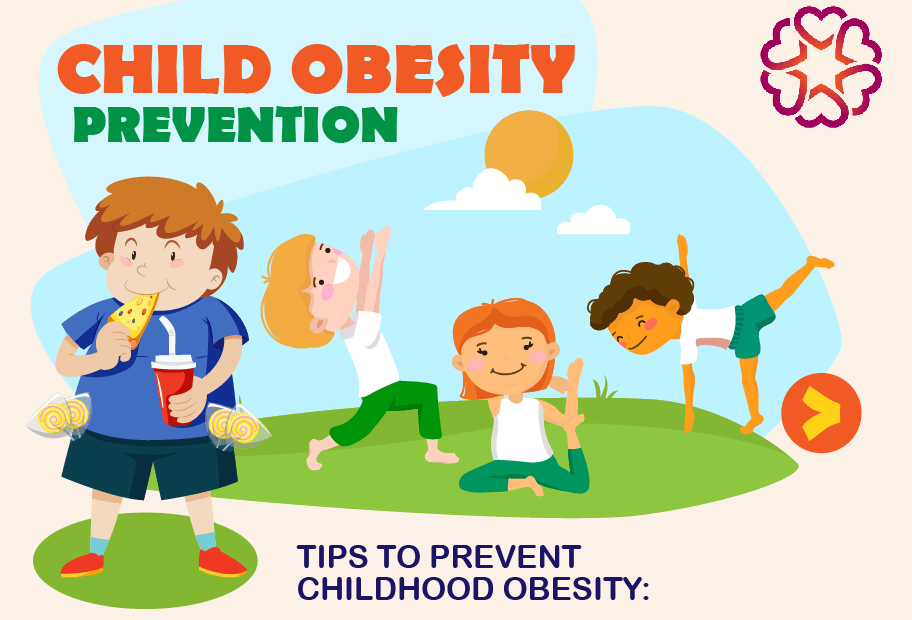Childhood obesity is a growing concern in today’s society, impacting not only the health of children but also their psychological and social well-being. As parents and guardians, understanding how to effectively prevent childhood obesity is crucial. Below are some essential strategies to help you guide your children toward a healthier lifestyle.
Understanding Childhood Obesity
Childhood obesity occurs when a child has an excess amount of body fat. It is often determined using the Body Mass Index (BMI) as a screening tool. Factors contributing to childhood obesity include genetics, poor eating habits, lack of physical activity, and environmental influences. Parents play a vital role in shaping their child’s health behaviors and lifestyles.
Eat Well: The Foundation of Health
A balanced diet rich in fruits, vegetables, whole grains, and lean proteins is vital for healthy growth and development. Encourage your children to choose nutritious foods over processed snacks. Cooking meals at home not only ensures the use of healthy ingredients but also provides an opportunity for family bonding. Consider involving your children in meal preparation to teach them about nutrition and foster an appreciation for healthy eating.
Lead by Example
Children learn behaviors by observing their parents. To instill healthy habits, model a nutritious diet and an active lifestyle. Discuss your food choices and physical activities with them, emphasizing the importance of these choices. By creating a healthy environment at home, you’re setting a strong foundation for your child’s future.
Ditch the Clean Plate Club
Forcing children to finish their meals can lead to unhealthy eating habits. Instead, encourage them to listen to their hunger cues. Teach them to eat until they are satisfied, not until their plate is empty. This approach promotes mindful eating, helping them understand their body’s signals.
Eat Slowly: Savor Every Bite
Eating too quickly can lead to overeating, as it takes time for the brain to register fullness. Encourage family meals where everyone sits down together and takes their time to enjoy the food. Discussing the flavors and textures can enhance the eating experience and promote slower eating habits.
Read Labels Together
Take trips to the grocery store as a learning opportunity. Teach your children how to read food labels and understand the ingredients in their favorite snacks. This practice helps them make informed choices and recognize healthier options.
Get Off the Couch
Physical activity is essential in preventing childhood obesity. Aim for at least 60 minutes of active play each day. Engage in fun family activities like biking, hiking, or playing sports. Making exercise a family event can encourage children to stay active while enjoying quality time together.
Watch What You Drink
Sugary drinks are a significant contributor to childhood obesity. Teach your children to prefer water over soda or sugary juices. If they do consume these drinks, limit portions and encourage moderation. Always keep water accessible to foster hydration habits.
Talk About Health Openly
Discuss health topics with your children, emphasizing the importance of nutrition and physical activity. Instead of just forbidding unhealthy foods, explain why certain choices are better than others. Open discussions can foster a deeper understanding and encourage them to make healthier choices independently.
Avoid the Extreme
Avoid strict restrictions on certain foods, as this can create an unhealthy relationship with food. Instead, practice moderation. Allow occasional treats, and serve them in appropriate portions. This balanced approach prevents food cravings from becoming overwhelming.
Conclusion
Preventing childhood obesity requires a multifaceted approach involving healthy eating, regular physical activity, and positive parental guidance. By modeling healthy behaviors and fostering an open dialogue about nutrition and health, you can help your children build a strong foundation for a lifetime of healthy habits. Start today, and empower your children to make healthier choices for themselves.

